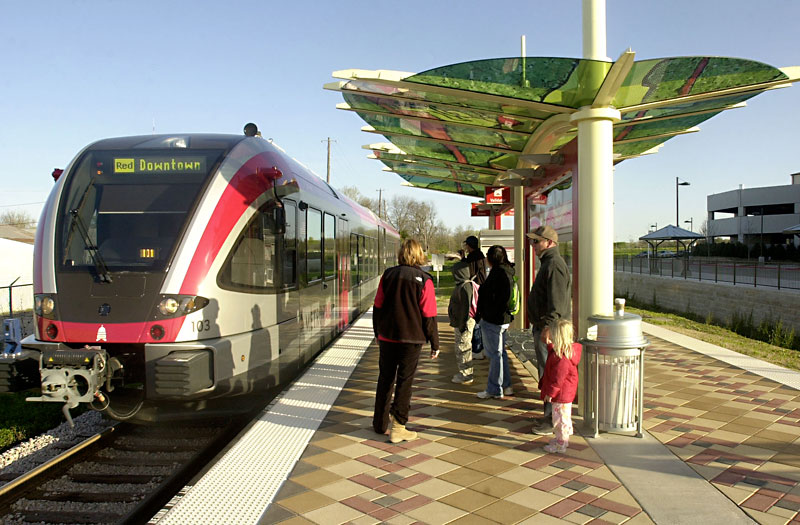Transit Proposal Arrives, Right on Time
City, Cap Metro create Project Connect partnership
By Mike Clark-Madison, Fri., Aug. 14, 2020
At a joint meeting beset by tech gremlins, the Austin City Council and Capital Metro board of directors on Friday, Aug. 7, closed the deal on their unprecedented partnership to build a massive expansion of the city's transit system – if voters agree to its funding in November.
The two bodies adopted the Project Connect system plan on June 10, after more than two years of planning and community engagement. They then agreed on July 27 to an "initial investment" first phase – about two-thirds of the whole, to be built over a decade – of $7 billion in capital costs, of which 55%, or $3.85 billion, would come from Austin taxpayers. Almost all of that would come through a hike in the city property tax rate – 8.75 cents per $100 valuation – that requires a tax ratification election (TRE). The final mechanics of setting this rate, and the November TRE to approve it, are part of the city's budget adoption this week (in progress as we go to press).
Despite protestations by transit opponents of a "25% increase in Austin property taxes! During a pandemic, no less!" the actual impact is just about 4% of the overall tax bill, or $23/month for the owner of a $325,000 house, Austin's median home value. It's real money, but it's less than those same owners pay annually to support Austin Community College or Central Health, and like those entities – both of which successfully passed large TREs to reach their current funding levels – the money is going to a brand new agency, the Austin Transit Partnership. Friday's mission for Council and the Cap Metro board (which share several members) was to set in motion the creation of that joint local government corporation, which they did unanimously.
Before doing that, the two bodies heard for several tech-impaired hours from the public. Much of that testimony spoke to the system plan and proposed TRE that were already approved in prior meetings, but a good bit of comment focused on the ATP itself, and especially on how it would ensure equitable outcomes for Project Connect investments. Though more abstract concerns about gentrification and displacement have long been part of the 20- or 30-year-long saga to bring big-city transit to Austin, the level of engagement of social justice advocates specifically on Project Connect has been new and noteworthy, and many were underwhelmed at the proposed ATP framework's provisions for community participation.
In response, Council Members Ann Kitchen (who is also a Cap Metro board member) and Greg Casar, along with Travis County Commissioner Jeff Travillion, aimed to assure the public that the ATP is still a work in progress that's already been refined to give the community a larger voice. In addition to a community advisory committee, the ATP's initial five-member board includes three "community experts" who would, Kitchen noted, according to the ATP bylaws be named to "represent our diverse and inclusive community" and able to "consider wholly Project Connect's benefits and potential impacts, particularly on vulnerable communities aimed to be served by transit."
And with that, the two bodies approved the interlocal agreement to form the ATP, as well as the considerations to be included in the city's "contract with voters" – again, highlighting "neighborhood-level strategies" to mitigate displacement, using the $300 million in the plan for that purpose. Though that's a small part of the Project Connect price tag, it's the largest such set-aside among comparable projects in other cities, says Capital Metro president and CEO Randy Clarke, and a reflection of how Austin now has the chance to do transit better and more collaboratively than it would have before. "There's been a crossover effect where people understand that transit is not just a one-off Cap Metro thing, but integral to everything that goes on in this city," Clarke told us before the vote. "People coming to Austin understand that we need this."
Got something to say on the subject? Send a letter to the editor.











